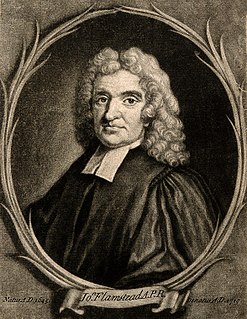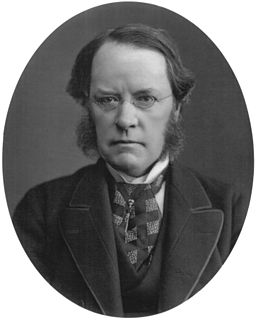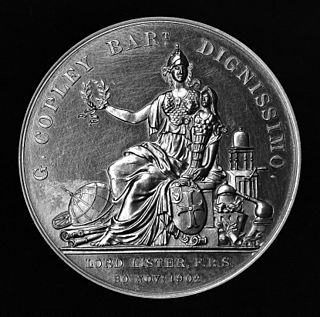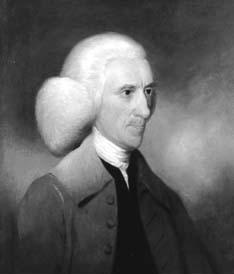
Eric Gray Forbes (1933-1984) FRSE FRAS was Professor of the History of Science at the University of Edinburgh.

Eric Gray Forbes (1933-1984) FRSE FRAS was Professor of the History of Science at the University of Edinburgh.
He was born in St. Andrews in Fife on 30 March 1933. He went to Madras College in St Andrews University and graduated BSc. He then continued as a postgraduate at St Andrews and the University of London gaining a PhD in Astronomy.
From 1961 to 1965 he lectured in mathematics and physics at St Marys College in Twickenham. In 1965 he moved to take up a post at the University of Edinburgh and was given his professorship in 1978. He did much research on longitude and navigation in the 18th century and on John Flamsteed former Astronomer Royal, and on the German scientist Tobias Mayer. He made major contributions to the 1980s project, Scotland’s Cultural Heritage. [1]
In 1984 he was elected a Fellow of the Royal Society of Edinburgh.
He died in Edinburgh on 21 November 1984. [2] On his death his wife donated a substantial collection of his books to the University of Edinburgh
In 1966 he married Maria Sibilla Lürken, a German linguist. They had a daughter and a son. [3]

John Flamsteed FRS was an English astronomer and the first Astronomer Royal. His main achievements were the preparation of a 3,000-star catalogue, Catalogus Britannicus, and a star atlas called Atlas Coelestis, both published posthumously. He also made the first recorded observations of Uranus, although he mistakenly catalogued it as a star, and he laid the foundation stone for the Royal Greenwich Observatory.

Lyon Playfair, 1st Baron Playfair was a British scientist and Liberal politician.

John Playfair FRSE, FRS was a Church of Scotland minister, remembered as a scientist and mathematician, and a professor of natural philosophy at the University of Edinburgh. He is best known for his book Illustrations of the Huttonian Theory of the Earth (1802), which summarised the work of James Hutton. It was through this book that Hutton's principle of uniformitarianism, later taken up by Charles Lyell, first reached a wide audience. Playfair's textbook Elements of Geometry made a brief expression of Euclid's parallel postulate known now as Playfair's axiom.

The Copley Medal is an award given by the Royal Society, for "outstanding achievements in research in any branch of science". It alternates between the physical and the biological sciences. Given every year, the medal is the oldest Royal Society medal awarded and the oldest surviving scientific award in the world, having first been given in 1731 to Stephen Gray, for "his new Electrical Experiments: – as an encouragement to him for the readiness he has always shown in obliging the Society with his discoveries and improvements in this part of Natural Knowledge".
Stephen Gray was an English dyer and astronomer who was the first to systematically experiment with electrical conduction. Until his work in 1729 the emphasis had been on the simple generation of static charges and investigations of the static phenomena. He also first made the distinction between conduction and insulation, and discovered the action-at-a-distance phenomenon of electrostatic induction.
The Plumian chair of Astronomy and Experimental Philosophy is one of the major Professorships in Astronomy at Cambridge University, alongside the Lowndean Professorship. The chair is currently held at the Institute of Astronomy in the University. The Plumian chair was founded in 1704 by Thomas Plume, a member of Christ's and Archdeacon of Rochester, to "erect an Observatory and to maintain a studious and learned Professor of Astronomy and Experimental Philosophy, and to buy him and his successors utensils and instruments quadrants telescopes etc."

Thomas Chalmers, was a Scottish minister, professor of theology, political economist, and a leader of both the Church of Scotland and of the Free Church of Scotland. He has been called "Scotland's greatest nineteenth-century churchman".

Agnes Mary Clerke was an Irish astronomer and writer, mainly in the field of astronomy. She was born in Skibbereen, County Cork, Ireland, and died in London.

Tobias Mayer was a German astronomer famous for his studies of the Moon.

Prof Alexander Wilson was a Scottish surgeon, type-founder, astronomer, mathematician and meteorologist. He was the first scientist to use of kites in meteorological investigations.
Eric Ronald Priest is Emeritus Professor at St Andrews University, where he previously held the Gregory Chair of Mathematics and a Bishop Wardlaw Professorship.
Hermann Alexander Brück CBE FRSE was a German-born astronomer, who spent the great portion of his career in various positions in Britain and Ireland.
Edward Bernard was an English scholar and Savilian professor of astronomy at the University of Oxford, from 1673 to 1691.
Richard Towneley was an English mathematician, natural philosopher and astronomer, resident at Towneley Hall, near Burnley in Lancashire. His uncle was the antiquarian and mathematician Christopher Towneley (1604-1674).

Sir Jonas Moore, FRS (1617–1679) was an English mathematician, surveyor, ordnance officer, and patron of astronomy. He took part in two of the most ambitious English civil engineering projects of the 17th century: draining the Great Level of the Fens and building the Mole at Tangier. In later life, his wealth and influence as Surveyor-General of the Ordnance enabled him to become a patron and driving force behind the establishment of the Royal Observatory, Greenwich.
Wallace Martin Lindsay FBA was a classical scholar of the late 19th and early 20th centuries and a palaeographer. He was Professor of Humanity at University of St Andrews.
Prof John Macnaghten Whittaker FRS FRSE LLD was a British mathematician and Vice-Chancellor of the University of Sheffield from 1953 to 1965.

Andrew Duncan, the elder FRSE FRCPE FSA (Scot) was a British physician and professor at the University of Edinburgh. He was joint founder of the Royal Society of Edinburgh.

EdmondHalley, FRS was an English astronomer, geophysicist, mathematician, meteorologist, and physicist. He was the second Astronomer Royal in Britain, succeeding John Flamsteed in 1720.
Prof Anthony Elliot Ritchie FRSE FRCPE LLD was a 20th-century Scottish physiologist and educator.